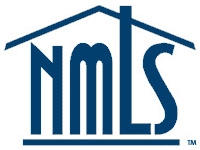FL Housing Bond Program
The Florida Housing Finance Corporation (FHFC) administers the Florida Housing Bond Program, which is designed to assist low and moderate-income individuals and families in obtaining affordable housing. The program utilizes tax-exempt bonds issued by the state to provide financing for affordable rental and homeownership opportunities.
Key features of the Florida Housing Bond Program may include:
- Affordable Housing Development: The program supports the development of affordable rental housing by providing financing through tax-exempt bonds. This helps developers construct or rehabilitate rental properties that are affordable for low to moderate-income households.
- Mortgage Credit Certificates (MCCs): MCCs are issued through the program to qualifying homebuyers, allowing them to claim a federal income tax credit on a portion of the mortgage interest paid each year. This can result in significant savings for homeowners over the life of their mortgage.
- Single-Family Mortgage Revenue Bonds: These bonds are issued to provide below-market interest rate mortgage loans to eligible first-time homebuyers. The program aims to make homeownership more accessible by offering affordable financing options.
- Down Payment Assistance: Some iterations of the program may offer down payment assistance to help qualified homebuyers cover the upfront costs of purchasing a home. This assistance can take the form of grants or low-interest loans.
- Eligibility Requirements: Eligibility for the program typically depends on factors such as income level, credit score, and property location. Applicants must meet certain criteria to qualify for assistance under the program.
Overall, the Florida Housing Bond Program plays a crucial role in expanding access to affordable housing for residents of Florida, particularly those with lower incomes. It serves as a vital resource for individuals and families seeking to achieve homeownership or access affordable rental housing in the state.
The FL Housing Bond Program offers a $10,000 bond for down payment assistance to qualified first-time homebuyers who have not owned a home as a primary residence in the last three years and to veterans or active military service.
PROGRAM HIGHLIGHTS
- FHA, VA, USDA and FNMA loan options
- Maximum DTI is 50%
- Income limits are determined by household size and county where property is located.
- All household income is considered (persons 18 and older living in the household).
- Co-signer income is not considered in the household income calculation, but will be considered for qualifying
FIRST-TIME HOMEBUYER
ELIGIBILITY’
Borrowers must provide three (3) years tax returns for all household members (including non-borrowing spouse)
OR a Verification of Rent if no tax returns are available (including spouse’s to verify status).
* Vetorans and borrowors purchasing in Designated Targotod areas are exempt from this requirement.
HTH:
DPA 5% of total loan amount. Minimum is $10,000 and max is $35,000. No payment or interest.
Income is application ONLY. Not household
We can use certain income types and ignore others. We can use salary and commission but ignore OT and Bonus income. Or ignore everything except salary. But we cannot use a portion of an income type. It is all or none.
One borrower must be full-time and employer will determine what full-time status is. Previously it was a minimum of 35 hours per week.
Same full-time borrower must also work for an employer that has brick and mortar in FL. Borrowers that work from home must ‘report’ to that office or work out of that specific location. Cannot simply qualify if employer has a location in FL.
SE Borrowers must have third party confirmation of full-time status. Borrower’s CPA, bookkeeper or tax preparer may provide a letter confirming full-time status.
Non-occupying Co-Signor income counts toward overall income limit
Spouse can be left off the application to qualify since it is application income only and not household income
Fannie Mae Conventional no longer permitted.
When going Freddie Mac Conventional, below 80% AMI borrowers receive about .25% better in rate and comes with reduced MI.














